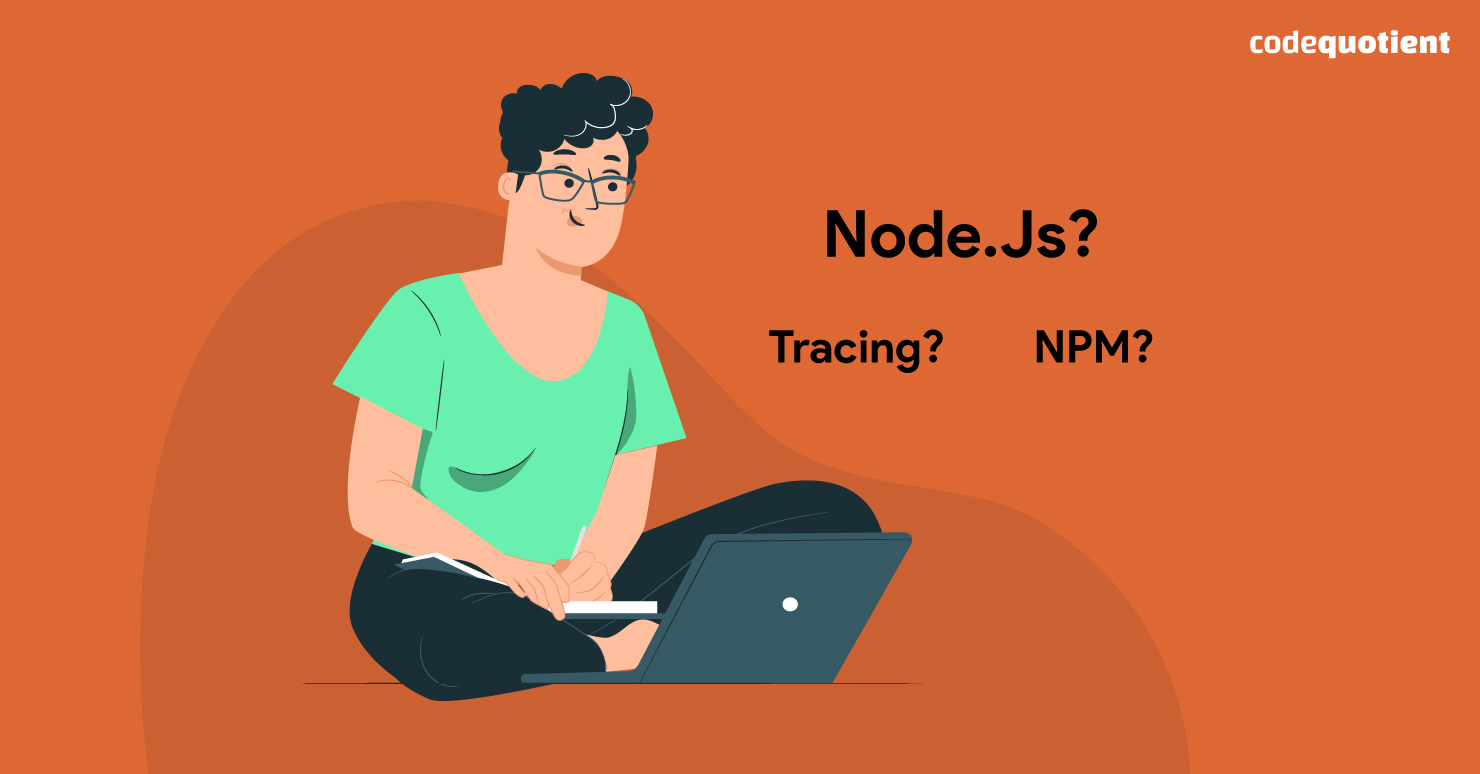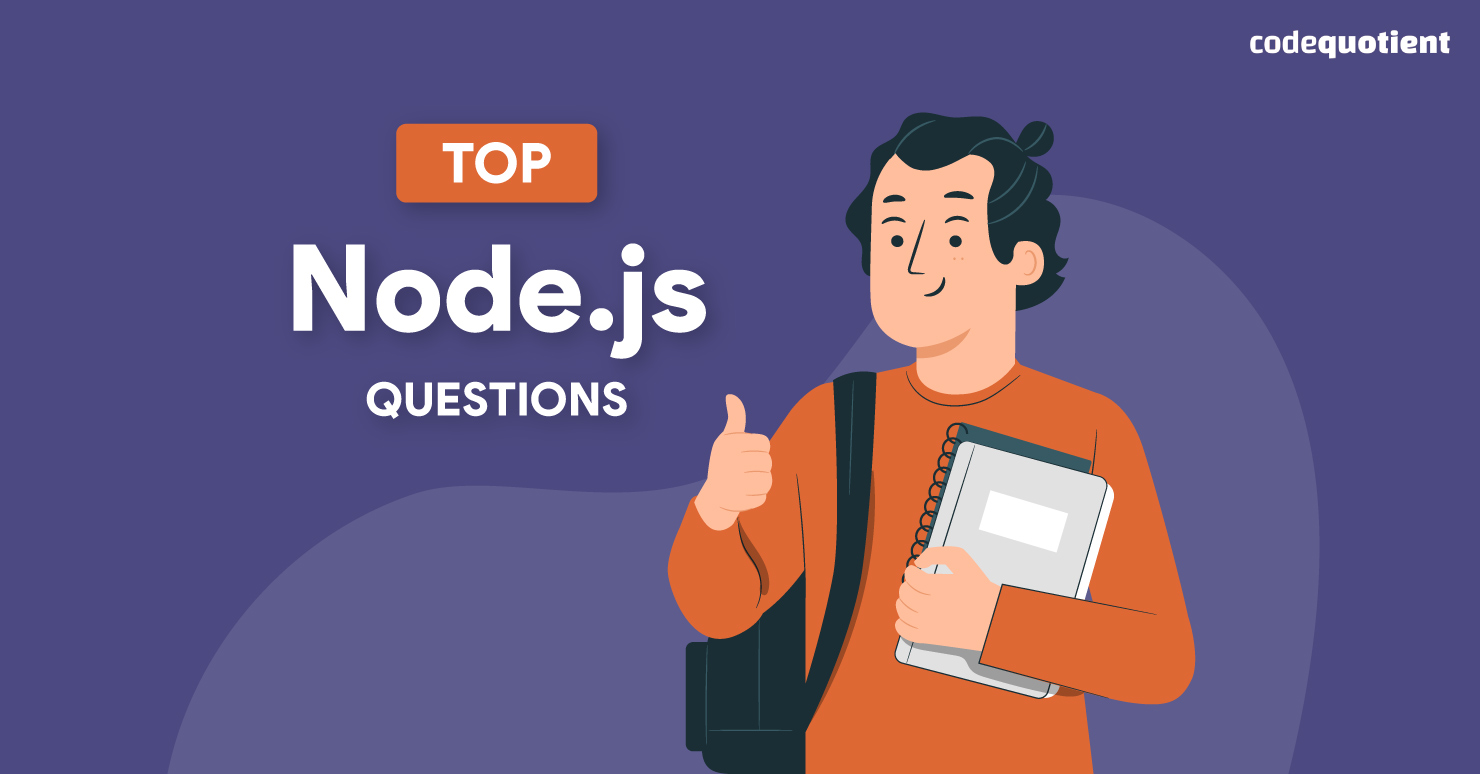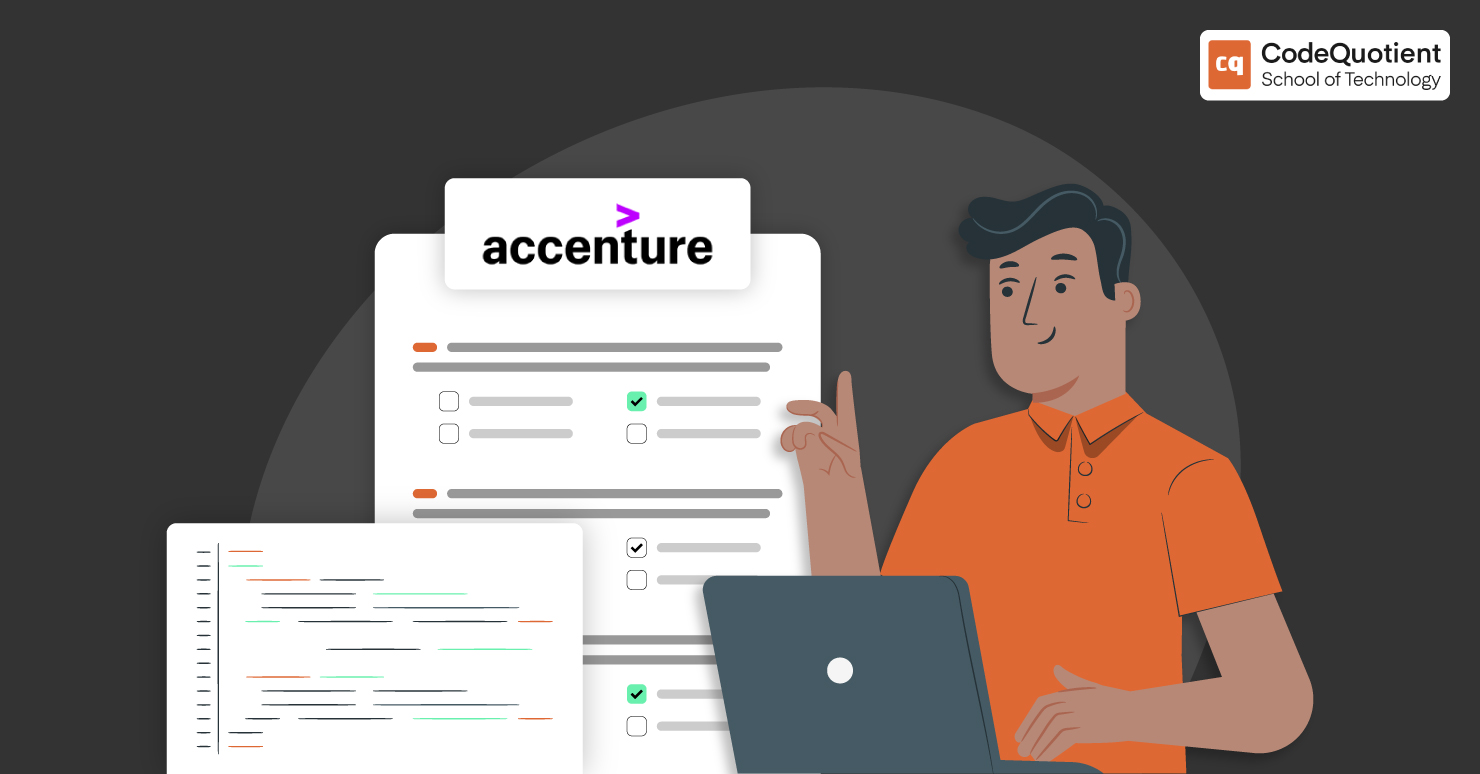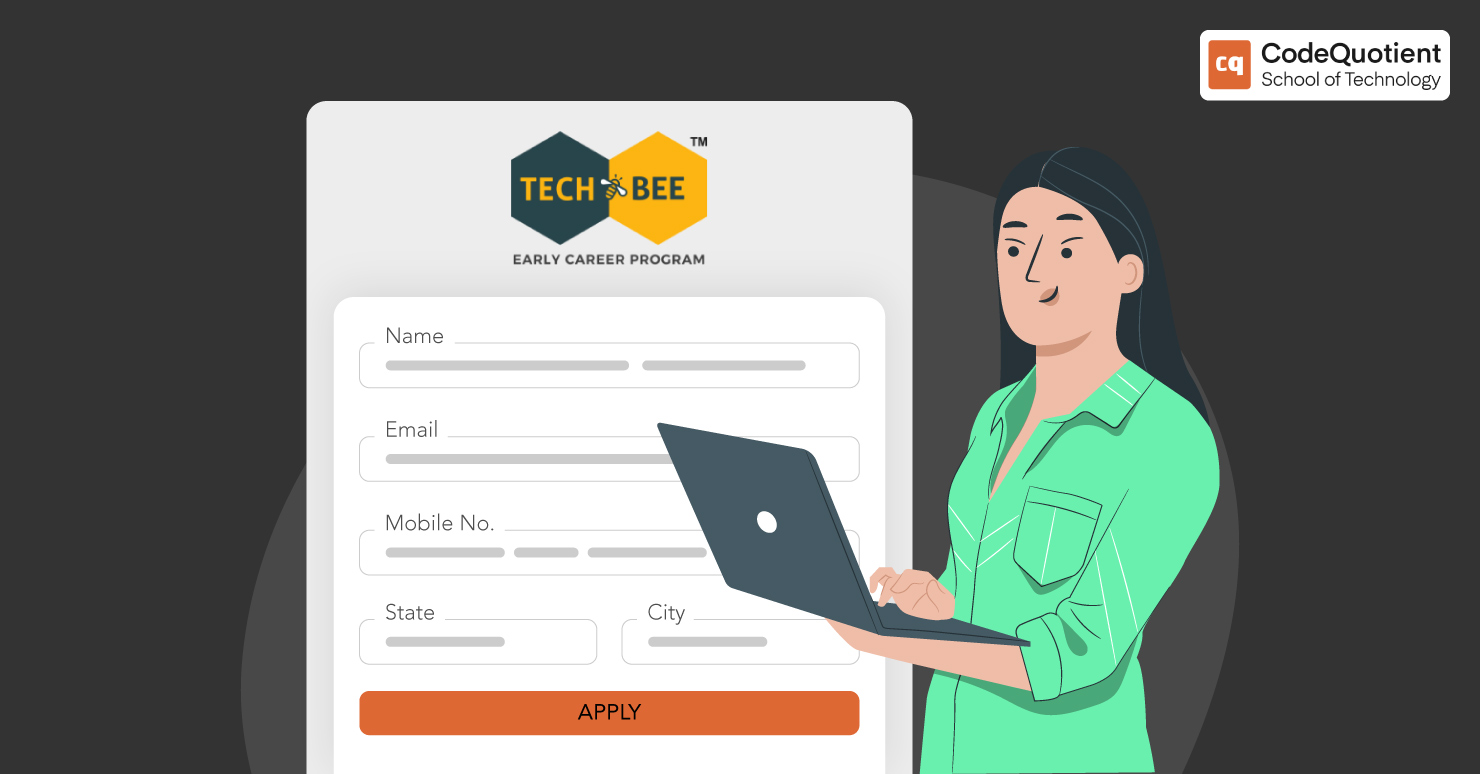The number of Node.js jobs is increasing, translating to increased competition for jobs. According to a Stack Overflow’s 2021 Developer’s survey, Node.js is the 6th most popular and preferred programming language globally. Many companies use Node.js, including LinkedIn, IBM, GoDaddy, Groupon, Netflix, Paypal, etc.
If you’re awaiting a tech interview, the chances are that you will require sound knowledge about Node.js. You’ve come to the right place if you’re looking for Node.js interview questions for experienced or beginners.
So let’s get started with the most crucial Node.js interview questions and answers.
Basic Node.Js Interview Questions

Let’s get started:
1. What is Node.Js and its features?
Node.js is a runtime platform based on the JavaScript engine in Google Chrome. A single thread model loops its events using the concurrency model.
Rather than blocking an application, it assists in the registration of a callback to the new application. This allows the current application to continue.
As a result, concurrent operations can be handled without the need for multiple execution threads. It interacts with a filesystem using JavaScript and C or C++.
The following are the main characteristics of node.js:
- Node.js Library: The majority of developers are already familiar with JavaScript. Node.js includes a JavaScript library. As a result, node.js is simple to use for developers.
- Single-threaded and highly scalable: It uses a single thread for event looping. Although the responses may not reach the server promptly, no operations are halted. In addition, Node.js creates a single thread to handle many requests, whereas traditional servers have limited threads to handle requests.
- No buffer: These applications do not require a buffer and simply send data in chunks.
2. What is tracing?
You can trace information generated by V8 using tracing. It can be enabled by starting the node with the flag — trace-events-enabled.
The flag –trace-event-categories can be used to specify all of the recorded categories. Chrome:/tracing can be used to open the logs that have been enabled.
3. What is callback hell?
Callback hell, sometimes known as the ‘Pyramid of Doom,’ is an asynchronous programming anti-pattern. Terminologically, it is a slang phrase for many interconnected “if” statements or functions.
A few callbacks appear innocuous if your application logic will not get too complicated. However, as your project’s requirements grow, you’ll rapidly find yourself with layers of nested callbacks that can be problematic.
4. How to avoid Callback hell?
Since Node.js only uses a single thread, many events may be queued. As a result, whenever a long-running query completes its execution, the callback associated with the query is executed. The following steps can be taken to resolve this problem:
- Modular code: This code will be broken into smaller modules and later connected to the main module to achieve the desired outcome.
- Promise mechanism: This is a different way to write async code. This mechanism ensures either a successful or unsuccessful outcome. They accept two optional arguments, one of which is called depending on the state of promise.
- Use of generators: These routines use the yield keyword to wait and resume. Asynchronous operations can also be suspended and resumed.
- Async mechanism: This method allows for a sequential execution flow. The <async.waterfall> API in this module passes data from one operation to the next using the next callback. The primary method is the caller, which is called only once via a callback.
Advanced Node.js Interview Questions
Let’s get started:
1. What is NPM?
NPM stands for Node Package Manager. It serves two primary purposes:
- It is based on the Online Repository for node.ls packages found at nodejs.org.
- It manages versions and works as a command-line utility.
You can check the version with the command below:
npm -version
To install any module:
Npm install <Module Name>
2. Which database is the most popular among Node.js users?
The most popular database for Node.js is MongoDB. It’s a document-oriented, NoSQL, cross-platform database with high performance, high availability, and easy scalability.
3. What is REPL in Node.js?
The acronym REPL stands for Read Eval Print Loop, and it is a computer environment. It’s similar to a command prompt on a Windows console or a Unix/Linux shell. The system then produces an output. It performs the following tasks:
– READ: It takes user input, parses it into JavaScript, and then stores it in memory.
– EVAL: It runs the data structure used to store the information.
– PRINT: It outputs the result of the command execution.
– LOOP: The above command is repeated until the developer presses Ctrl + C twice.
4. What is event-driven programming?
The event-driven programming method heavily relies on events to initiate various functions. An event in this scenario could be anything, such as pressing a key or clicking a mouse button.
Following the ‘publish-subscribe’ pattern, whenever an event occurs, a call-back function already registered with the element is executed. Node.js is faster than other comparable technologies because of this programming approach.
CodeQuotient- Your Ideal Coding Partner
At CodeQuotient, we offer to learn solutions based on today’s technological demands. We begin our full-stack training with HTML5, CSS, and React on the front end and Node.js, Express, and MongoDB on the back end.
Our SuperCoders program is for a hand-picked group of the best students from across the country. The program’s environment teaches you how to work in a team and communicate with your teammates. It will become a valuable asset for any working professional over time.
So, if you want to learn how to code, work on real-world projects, and prepare for future placements, the SuperCoders Program is for you. The goal is to mold students into prompt professionals while also developing their personalities.




